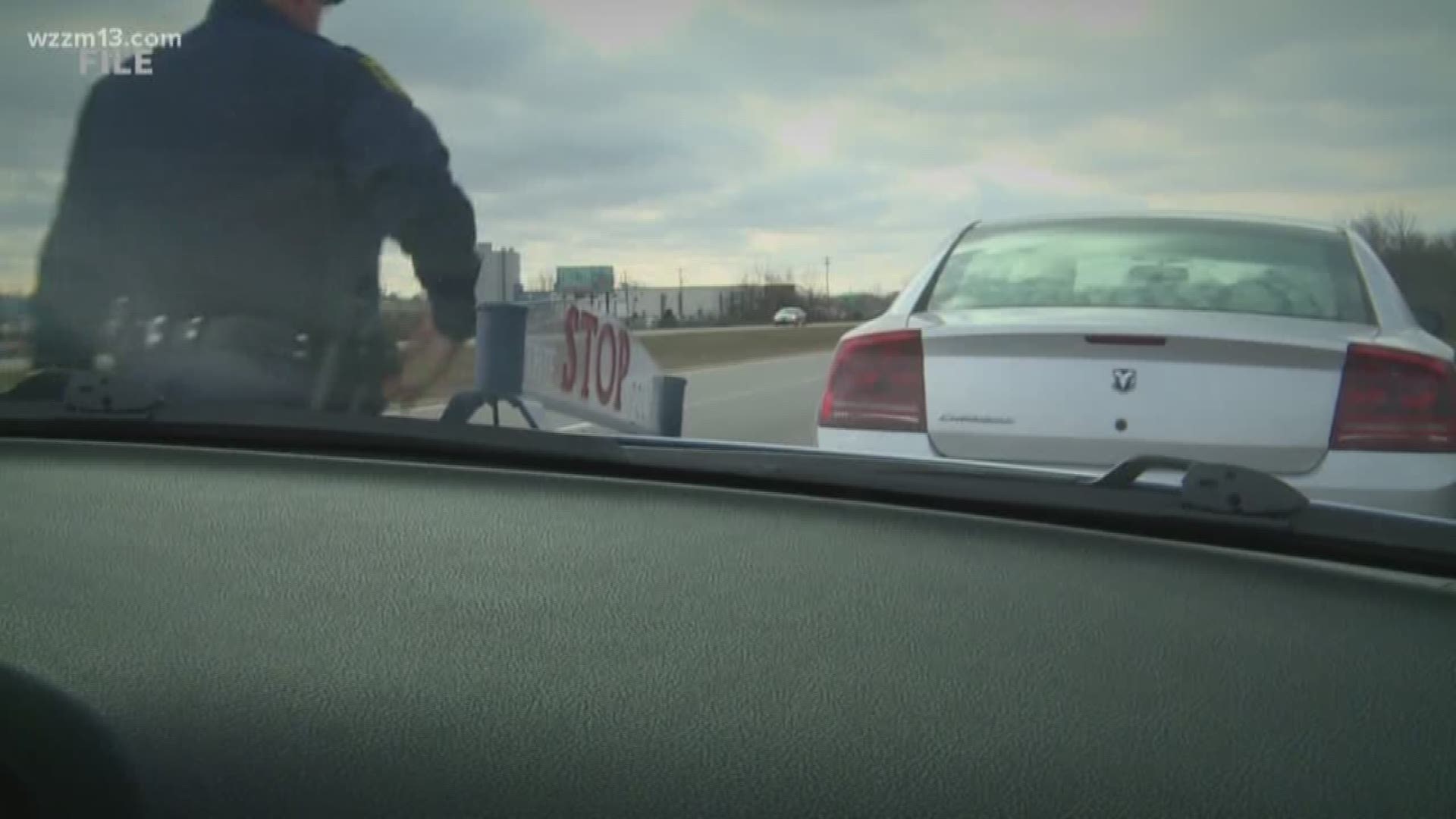A pilot program that uses specially trained police officers to test drivers suspected of driving under the influence of drugs hasn't exactly lead to an influx of prosecutions locally.
“As far as I know, we've gotten one so far from the pilot project,'' said Kent County Prosecutor Chris Becker.
The state in November launched the Preliminary Oral Fluid Analysis program, which allows specially trained officers to give saliva tests to drivers suspected of being under the influence of drugs.
Twenty-six specially trained officers are participating in the pilot program in Berrien, Delta, Kent, St. Clair and Washtenaw counties. The eight officers participating in Kent County come from the Michigan State Police post in Rockford, the Grand Rapids Police Department and the Kent County Sheriff's Department.
Mouth swabs are used to collect saliva for the roadside test for drugs such as marijuana, cocaine, heroin, methamphetamine as well as prescription medications.
“You really need to make sure that you're not behind the wheel of a car, particularly after you've taken some type of narcotic that your doctor has prescribed for you if it affects your driving,'' said Michael Prince, director of Michigan Office of Highway Safety Planning.
Becker said data compiled so far should assuage fears about widespread traffic stops.
“They weren't just pulling people randomly off of the road,'' Becker said. “You still have to have probable cause that they were driving inappropriately or there was a crash.''
Michigan State Police is overseeing the pilot program. Officials say they will not be releasing arrest data until after the program is completed.
Police will report to the Michigan Legislature about the program's accuracy and the number of arrests. If it's found to be effective, it could be expanded.
“Motorists under the influence of drugs pose a risk to themselves and others on the road,'' state police director Col. Kriste Kibbey Etue said in a news release. “With drugged driving on the rise, law enforcement officers need an effective tool to assist in making these determinations during a traffic stop.''
State Sen. Rick Jones, who spearheaded the program, says it is warranted due to a steady increase in fatal accidents involving motorists impaired by drugs. Michigan logged 236 drug-involved traffic fatalities last year, a 32 percent increase from 2015.
“There's a huge concern in Michigan,'' said Jones, R-Grand Ledge. “While drunk driving seems to be going down, drugged driving is on the upswing.''
Prince attributes the decline in drunk driving cases to greater public awareness.
“Mothers Against Drunk Driving did a great job in getting the message out, particularly starting in the 80s,'' Prince said. “We are seeing less alcohol involvement in fatal crashes and when you look at the sheer numbers, it's dropped over the last couple of decades.''
►Make it easy to keep up to date with more stories like this. Download the WZZM 13 app now.
Have a news tip? Email news@wzzm13.com, visit our Facebook page or Twitter.

